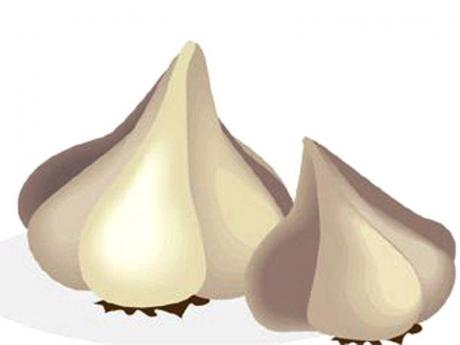Food - facts, fantasies
In the movies, garlic is used to repel vampires, but a cup of its tea is great for high blood pressure and chest cold. Just ask your grandmother. The world over, food does more than nourish the body in meals. It affects the way of life - what people do and how they think in the form of food lore.
A variant of folklore, these are informally learnt behaviours that form part of everyday experiences. They are found in the rituals your grandmother does in the kitchen every morning and the lime that is placed in the Bible to ward off evil. Some of these you might have already known, but for food month, let's dive into some food lore.
Garlic
In popular cinema, garlic is used as a defence against evil. This could be from the long-held view in Europe that garlic has the ability to ward off the 'evil eye'. It was said to work against devils and werewolves. To ward off vampires, garlic could be worn on one's person.
In ancient Greek, midwives hand garlic cloves in birthing rooms to keep evil spirits away. As centuries have passed, it has become commonplace in most European homes.
Oysters
Oysters have been a topic of intrigue and mystery since the days of ancient Greeks and Romans. Some are still rooted in society today surrounding this crustacean - the most popular is that it's an aphrodisiac.
While there is no scientific proof, that hasn't stopped the belief. It is believed that the high trace metal content of oysters could correct mineral imbalances in an individual, producing noticeable changes in certain physical functions and performances.
Oysters have enjoyed rich and frequent recognition in history and literature.
"He was a bold man who first ate an oyster." - Jonathan Swift
"Why, then the world is mine oyster, which I with sword will conquer." - William Shakespeare, The Merry Wives of Windsor.
"The Eldest Oyster winked his eye, and shook his heavy head. Meaning to say he did not choose to leave the oyster bed." - Lewis Carroll, Through the Looking Glass.
"You have never seen the sea, but in an oyster on the shell." - Edmond Rostand, Cyrano De Bergerac.
Limes
Limes are native to Southeast Asia and Malaysia. The lime thrives in more tropical climates than its close cousin, the lemon. In the East and West Indies, it is used in chutneys, marinades, chillies, confections and drinks. It is also central ingredient in Thai food.
There are stories of British sailors taking limes to sea to avoid scurvy. Even today, Caribbean sailors are said to take bottled lime juice to sea.
In rural Jamaica a lime is placed in an open Bible to ward off evil.
Limes are used ceremonially in the Vietnamese New Year's Festival of Tet. Lime powder is sprinkled on the floor, or under a decorated bamboo pole, which acts as a kind of tropical analogue of a Christmas tree. The custom is associated with a story that has many variations but surrounds a kingdom beset with demons. In one version, the Buddha negotiates a truce. The demons agree that the shade of a particular bamboo is off-limits to them, but the Buddha uses his powers to cause the tree to grow and spread to cover the entire land. He also anticipates that a few demons may cheat and continue to prowl, so he arms the people with arrows dipped in lime powder.
Basil
Basil supposedly derives its name from the terrifying basilisk - a half-lizard, half-dragon creature with a fatal piercing stare according to Greek mythology. The medicinal application of a basil leaf was considered to be a magical cure against the look, breath or even the bite of a basilisk. In keeping with its hostile status, Greeks and Romans believed the most potent basil could only be grown if one sowed the seed while ranting and swearing. This custom is mirrored in French verbiage where semer le baslic (sowing basil) means to rant.
In medieval times, it was thought that scorpions came from basil. Legend says to acquire a scorpion, one should place a few basil leaves under a flowerpot and, after a while, when the pot is lifted a scorpion will be found underneath.
In India, basil was consecrated to the Hindu god, Vishnu, whose wife Tulasi (also known as Tulsi) was said to have taken the form of basil when she came to Earth. Hindus avoid harming basil plants unless there is a good reason, and even then offer up prayers for forgiveness for touching a part of Tulasi.
To the ancient Romans, basil was a symbol of hatred, yet basil eventually became a token of love in Italy. Young maidens would wear a sprig in their hair to profess their availability. In some regions of Italy, basil is known as 'kiss-me-Nicholas'.
The royal herb is regarded in a similar manner in Romania where if a boy accepts a sprig of basil from a girl, it means they are engaged to be married.
What food lore do you know? For the month of November that will be celebrated as Food Month, share them with us at lifestyle@gleanerjm.com.

